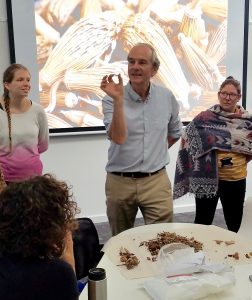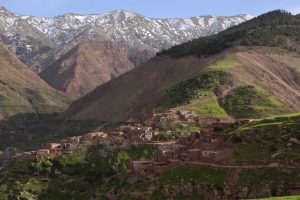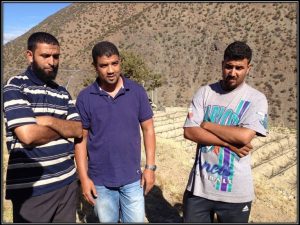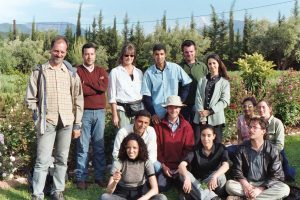
CBCD Honorary Fellow and Founder of the Global Diversity Foundation, Dr Gary Martin discusses research on biocultural diversity in Marrakech’s marketplaces and an ambitious plan to maintain the Biocultural landscape of Morocco’s High Atlas mountains.
Dr Gary Martin, one of the founders of Ethnobotany at Kent in 1999, and currently Honorary Research Fellow, visited the CBCD in October to work with staff and students as part of the Ethnobotanist in Residence Programme. In 2000, Gary founded the Global Diversity Foundation to support local and indigenous communities in their conservation and enhancement of biocultural diversity. The Global Environments Network is a recent spinoff and seeks to educate and link the next generation of global leaders.
At Kent, Gary discussed GDF’s long-term work in Marrakech’s markets to understand the trade in plants and animals, authentication of commercialized medicinal roots, and GDF’s new and ambitious programme, High Atlas Cultural Landscapes, funded by the MAVA Foundation and the Darwin Initiative, among other sources. As in all landscapes, the High Atlas has been shaped by the cultural practices of rural communities, such as traditional water management, transhumance, communal management of high elevation pasturelands, maintenance of culturally-managed trees, protection of sacred sites, soil conservation through terracing and other techniques, smallholder agriculture and agroforestry, and harvesting of wild medicinal and aromatic plants. All of these traditions contribute to the diversified use of elevational gradients and ecological niches of the High Atlas.

Over time, these practices have created an ecological mosaic that sustains local livelihoods, but these are increasingly threatened by changing economic, climatic and social realities. Not uncommon in rural areas around the world, the rural exodus of young people, increasingly severe and prolonged drought and low monetary rewards of traditional agriculture contribute to a general loss of cultural values and a change in social relations. GDF has launched a series of collaborations with local authorities and rural communities, as well as Moroccan government agencies, NGOs, academics and professionals, to implement an integrated biodiversity-hydrology-agroecology strategy that sustains communal and customary systems of decision-making, provides employment opportunities and promotes ecological restoration.

Their initiatives involve action research on sustainable land use practices and ethnobotany, practical actions such as rebuilding water canals and reservoirs and enrichment planting of commercial fruit trees and other plants, support for community-based enterprises, public information campaigns, capacity building through community exchanges of expertise, among other things.

CBCD staff and students have worked with GDF for many years now, gaining valuable research experience and employment, while contributing to its many projects, in Morocco and elsewhere.
For more information go to the GDF website.